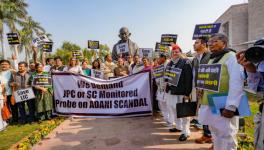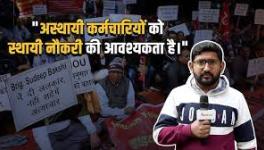A rudder-less United Progressive Alliance has convinced no one that it is acquiring some kind of anchor by shuffling its crew on a burning deck.
That certainly seems to be the most common reaction to the "ministerial reshuffle" enacted mid-term by UPA captains- prime minister Manmohan Singh and Congress president and UPA chairperson Sonia Gandhi. UPA-sympathetic voices were happy that certain names that were no longer possible to be defended for their steering of various ministries have been finally asked to disembark.
Dayanidhi Maran - who was formally accused by the CBI for delaying licences for the Aircel group until it was bought off by a Malaysian firm which in turn allegedly repaid his favour in investing in the Sun Group's digital TV plans - has walked the plank and is out of the cabinet. Maran clearly worked for the interests of his family flagship Sun TV rather than that of the people who he was supposed to represent. Another person who was dropped was Murli Deora, whose petroleum ministry came under the CAG's scanner for the flawed manner in which its production sharing contract with Reliance for the exploration of gas in the KG basin was being implemented . Deora has however ensured that his son has taken a place in the list of ministers.
Siddharth Varadarajan in his normative piece about the UPA a couple of days ago, wrote that it needed the "mother of all reshuffles" to take it out of the morass that the government finds itself in. Even if many of his points were well taken, it was just "well-wishing" and many of the changes he had asked for (and to be fair, did not anticipate) never happened.
What is unsaid about how ministerial berths have been provided in the UPA is that they have got little to do with the merit of the person or his/her position on various policies. With the UPA in particular, the key to ministerial allocation generally is the ability to act for special interests. The stench of corruption and malfeasance that has pervaded the UPA has much to do with the fact that special interests - corporate mostly - have controlled policy making in the government. That is not going to change by the addition/subtraction of a few crew members in the UPA mother ship.
Consider the top four positions in the government - finance, defense, external affairs and home. Except for the defense ministry helmed by the "unimpeachably honest" AK Antony, the rest of the ministries cannot say that they had the best interests of their country's citizens in mind in the manner they implemented policy decisions. The finance minister Pranab Mukherjee has steadfastly refused to take on the most pressing problem in the country - inflation and has presented budget after corporate friendly budget. Mukherjee also has a finger in every policy pie, heading a slew of EGoMs, including the one that decided to hand over natural gas pricing on a platter to Reliance enabling them to garner a massive super profit. The home minister P.Chidambaram has been a disaster in handling issues that require high political awareness and sensitivity. His handling of the Maoist challenge, the Telangana issue, the Kashmir imbroglio last year suggest that his imperious ways of functioning have yielded little dividends in solving intractable problems of this nature.
The allies of the Congress are no better, in fact quite abject as in the case of the Trinamul Congress. Before the ascension of Dinesh Trivedi to the railways ministry of the cabinet, the senior-most minister at the helm was Mukul Roy of the same party. His predecessor, leader and current West Bengal chief minister Mamata Banerjee was pathetic in her handling of the ministry presiding over numerous railway accidents and mishaps. With her attentions fixated at Writers' Buildings, she had little concern about passenger safety, train punctuality, and in her term, the Railways regressed as an institution. If she had shown the nadir of sensitivity blaming passengers for their own deaths because of a stampede in the New Delhi Railway Station last year, her junior party member and minister of state Mukul Roy emulated her by refusing to visit the site of accident in Fatehpur in Uttar Pradesh a couple of days ago. There is little confidence that Mamata Banerjee's successor, Dinesh Trivedi would be any better for the institution that still employs the largest number of workers in the country. If anything, one can expect a further movement towards greater privatisation and commercialisation of the institution to the detriment of the interests of the employees and passengers.
The DMK, of which much has been written and talked about, has always treated ministerial berths as avenues for crony capitalism, rent seeking and furthering ill gotten wealth for the first family of the party and their cohorts. The currently longest ruling political party at the centre - the DMK offers the worst example of caring little for concerns of malfeasance - notice the utter lack of compunction or remorse from the likes of DMK patriarch M.Karunanidhi, A.Raja, Dayanidhi Maran, Kanimozhi and the rest of the DMK "glitterati". The DMK still holds ministries where rent seeking is a lucrative exercise. And they have not been reshuffled in this latest cosmetic exercise enacted by the UPA.
The one minister who ruffled the feathers (relatively) of the widespread special interests with the UPA was former environment minister Jairam Ramesh. Exhibiting some spine in taking on vested interests who had always had it easy in circumventing and even formulating environmental norms and rules for their own benefits, Ramesh had earned the respect of grassroots organisers and people who had been affected by displacement and environmental degradation in various parts of the country. His "activist" presence - a derogatory reference to his methods of consulting stakeholders and environmental groups while deciding upon clearances - miffed no less than the "ace reformer" prime minister Manmohan Singh. And it is no wonder that he has been promptly removed from the post and shifted to rural development. One hopes (against hope) that his successor would show the same gumption to take on special interests - especially large real estate groups, mining companies and other assorted conglomerates willing to partake into the yields of primitive accumulation - but the peremptory shift does not yield confidence.
A few demotions and new sinecures for other ministers have not been received well by them. Mumbai based legislator Gurudas Kamat formally handed over his resignation unwilling to take on the important water resources and sanitation affairs ministry, apparently miffed at its "low profile". But that is no surprise. It is not the "low profile", but the low or practically little "rent seeking ability" in the ministry that miffs the likes of Kamat and company.
The continuation of a minister who has been expressly questioned for continuation in power by no less than the Supreme Court - Vilasrao Deshmukh also adds substance to the "special interests" theory vis-a-vis the UPA. Deshmukh, who was ludicrously in the helm of "rural development" despite having been indicted by the Supreme Court for having protected a private moneylender against accusations of torture and ill-treatment of villagers, has been shunted out to the science and technology ministry. He continues his naked quest for rent-seeking by this time trying to win the post for the presidency of the Mumbai Cricket Association with full support of the ace real estate businessman masquerading as a politician - Sharad Pawar. And that leads us to Sharad Pawar, who continues to wreak havoc on the agrarian sector in the country through sheer negligence as agriculture minister. Pawar has himself wanted to concentrate on the "very important" matters related to cricket in the role of the ICC president that he holds, but the prime minister continues to thrust the unwilling businessman onto the country.
No less than the cleaning of the Augean stables could have brought about a sea-change in the attitudes and functioning of the UPA government. But the essence of the actions by those at the helm has been to resist, deflect and parry widespread allegations of misgovernance, corruption, and malfeasance. That explains the continued presence of Kapil Sibal in the telecommunications ministry. Sibal in his role has done precisely what the corporate sector would have wanted him to do vis-a-vis the 2G scam - limit the damage to blaming a select set of individuals, deflect criticisms of widespread loss to the public exchequer by simply denying that there is a loss and parry attempts at forcing crony corporates which made the most out of the flawed 2G allocation process to pay the requisite costs of spectrum or cancel their licences. It is too bad that the Supreme Court has not bought into Sibal's methods and logic and have doggedly taken on the job of bringing the matter to justice. That Sibal's methods have alienated no less than the government's own solicitor general is testament to the extent of the role that special interests are playing themselves out in the matter.
All in all, there is no recognition by the government that it is policy that is skewed towards special interests that has generated the morass in the first place. And that is deliberate for the UPA is itself run by special interests.
Photograph Coutesy: yourbdnews.com
























